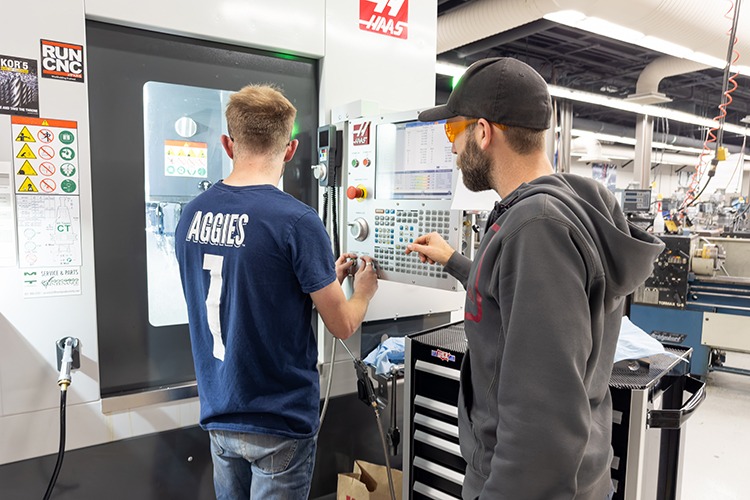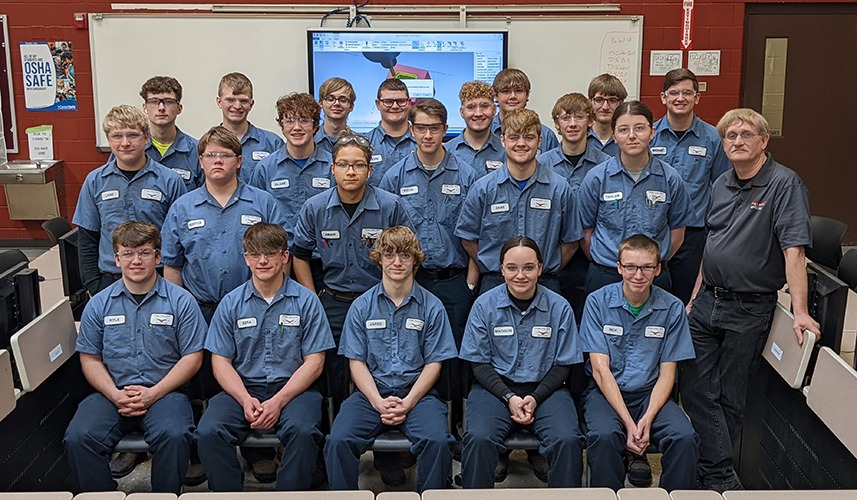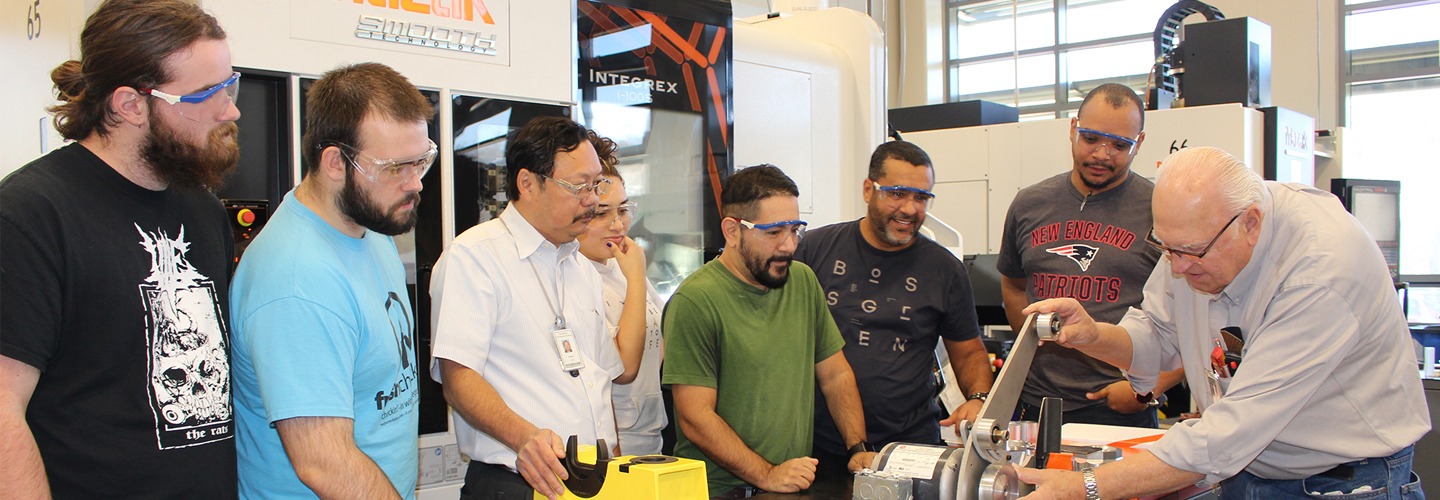
Connecticut Manufacturing Program Enjoys Statewide Reach
Founded twenty years ago, Asnuntuck Community College’s Advanced Manufacturing Program in Enfield, Connecticut, has become a major source of employees for the state’s many manufacturing companies. With the employer-employee relationship becoming a two-way street for the students, involved manufacturers have been supplying the school with both curriculum basics and shop equipment to ensure a steady flow of skilled people into the workforce.
Quick Facts
- Product Used: Educational Suite, Lathe, Mill
- Industry: Education
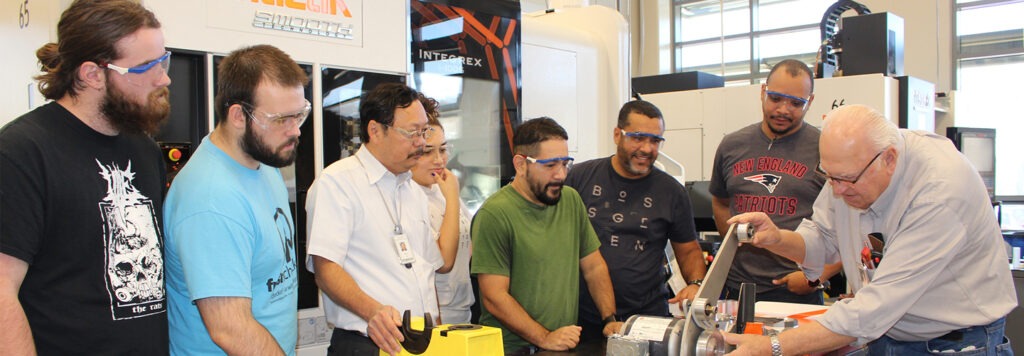
Project Details
- The Challenge: Provide students with courses that whet their appetites for a career in advanced manufacturing while leading them through a curriculum that gives them the programming and machining skills demanded by prospective employers.
- The Solution: Mastercam
- Benefits:
- Easy for students to grasp
- Support provided for teachers as needed
- Smoothly stepped from simple 2D to advanced 3D programming
- Applicable to a wide range of CNC machine tools
The Advanced Manufacturing program at Asnuntuck Community College in Enfield, Connecticut, has been providing students with the CNC skills required by today’s manufacturing companies for more than two decades. According to veteran educator Frank Gulluni, Director and Founder of the college’s Advanced Manufacturing Technology Center, “Well over 10,000 people have participated in our programs and that includes incumbent workers from companies across the state for training in advanced manufacturing operations.
“In the beginning, most of our students were dislocated workers coming to us for training that would help them find available jobs. Now, more than half are enrolling right out of high school with the aim of finding a good career, while the rest are employed people looking to either advance themselves or meet the increasingly demanding skills required by their employers.”
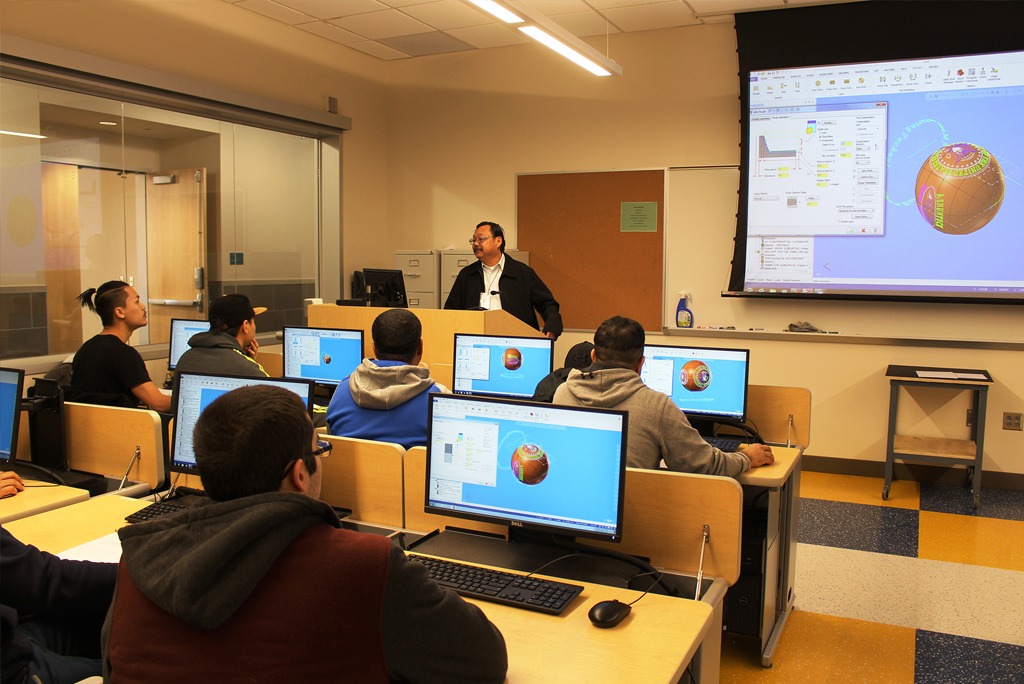
Today, some 50,000 square feet of space at the college is dedicated to the Advanced Manufacturing Technology Center, housing dozens of CNC machine tools including machining and turning centers with up to 5-axis capabilities, as well as machines for EDM, plasma cutting, water jet cutting, 3D printing, and sheet metal fabrication, along with 60 booths for teaching welding operations. “We also have an electro-mechanical program,” adds Gulluni.
“Students in the CNC machining program can take a few targeted courses required by their current employers,” says Gulluni, “or earn 34 credits toward an associate degree, six of which are in Mastercam-based CNC, along with such subjects as blueprint reading, metrology, quality assurance, math through trigonometry, and upwards of 600 hours of floor time.”
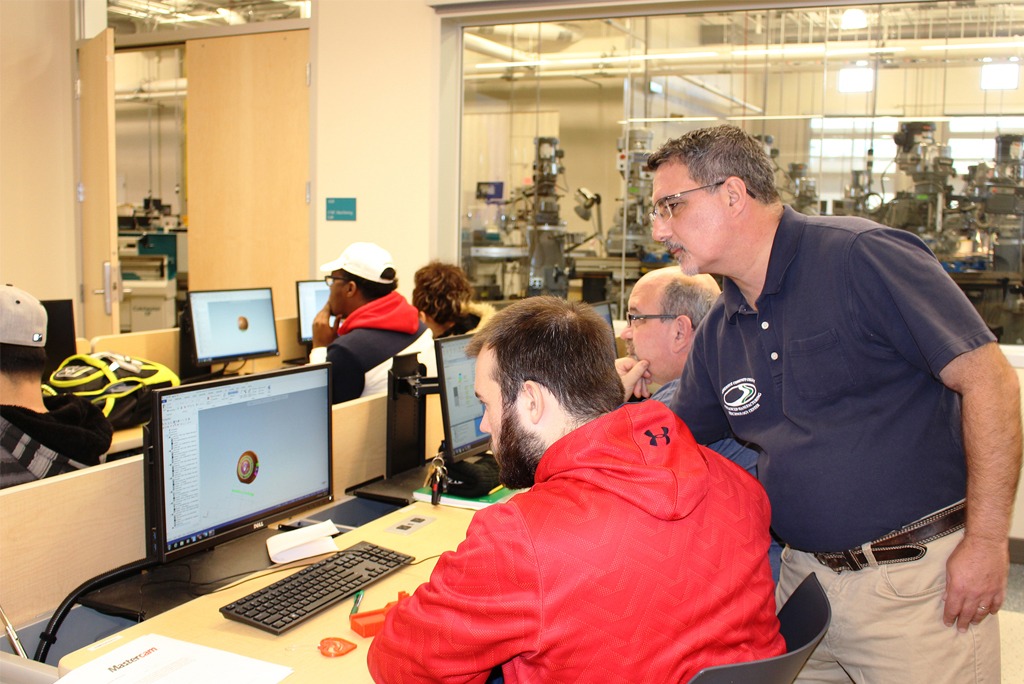
From the very onset of the program, as Gulluni was setting up the curriculum, the college brought onboard Bob Bressani to teach CNC operations. While Gulluni had an extensive background in teaching, Bressani’s bio includes management positions in several manufacturing companies. He immediately began establishing a flexible curriculum in CNC operations to meet the needs of the area’s machining companies. Statewide Reach for Local College is a detailed article in Manufacturing News that looks at this relationship.
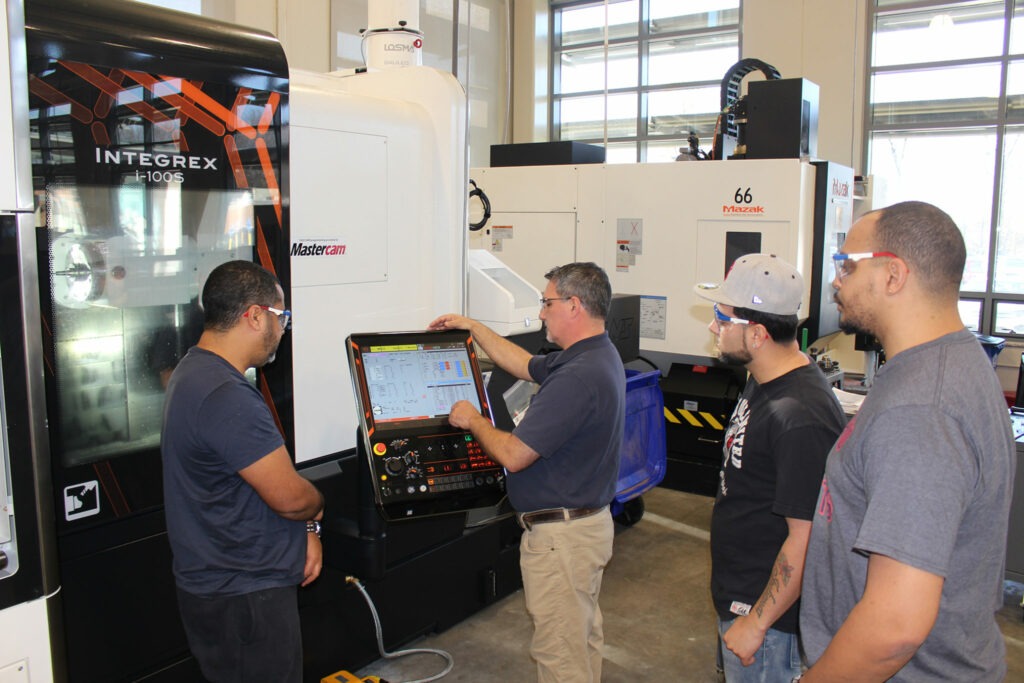
“We did a survey of those companies when we first set up our CNC capabilities,” says Bressani. “They told us what types of machines they used, as well as the CNC software they preferred. As a result, we obtained some CNC mills and lathes to start, plus Mastercam software for programming our machines.
“Our facility’s list has certainly grown since the early days. We now have dozens of Bridgeport® CNC machining centers and Hardinge® CNC turning centers on the shop floor; in all, we have more than 90 machine tools available to our students. We have 100 computers networked in our four labs, with 25 seats of Mastercam in each lab. Seven instructors with manufacturing backgrounds are on staff, teaching CNC machining and related subjects to more than 150 current Asnuntuck students.
“Overall, our students progress from not knowing a darn thing, to Cartesian coordinates, to getting a part into Mastercam either by importing it from SOLIDWORKS® or by actually drawing it in Mastercam and producing the toolpath code. I like Mastercam, because it’s easy to learn and use, even for complex 5-axis parts.
“Hundreds of companies in Connecticut are doing subcontract work for some big firms like Pratt & Whitney, and they tell us that they’ll take a drawing generated by a variety of CAD systems and drop it into Mastercam for their machines. I really like the High Speed and Dynamic Milling features because they help our students get through difficult jobs and shorten production time.”
In addition to providing an education for the school’s own students, Asnuntuck Community College also responds to the needs of many of the smaller companies doing subcontracting work for the big firms. They send employees to Asnuntuck Community College to take advantage of the training capabilities of the Advanced Manufacturing program. These companies discuss in detail with Gulluni and his team the skills required for the specific jobs to be performed by their employees. Programs at the school are then tailored to the specific needs and run from as few as 2 to as many as 78 weeks.
“What we do,” says Bressani, “is determine what they’re looking for in the way of manufacturing skills, then put together a package. That becomes the lesson plan. We don’t just take it out of a one-size-fits-all book.”
The school also sends instructors from the Advanced Manufacturing program to many of the larger companies to teach employees right at the plant. In the same manner, discussions are held with the companies’ managers and supervisors, and lesson plans are developed for the on-site instruction sessions.
From one side of Connecticut to the other, the Advanced Manufacturing Program at Asnuntuck Community College is proving its concept and value, every day.
Customer Quote
“Overall, our students progress from not knowing a darn thing, to Cartesian coordinates, to getting a part into Mastercam either by importing it from SOLIDWORKS® or by actually drawing it in Mastercam and producing the toolpath code. I like Mastercam, because it’s easy to learn and use, even for complex 5-axis parts.”
– Bob Bressani, CNC Operations Instructor, Asnuntuck Community College
Channel Partner Quote
“Students in the CNC machining program can take a few targeted courses required by their current employers or earn 34 credits toward an associate degree, six of which are in Mastercam-based CNC, along with such subjects as blueprint reading, metrology, quality assurance, math through trigonometry, and upwards of 600 hours of floor time.”
—Frank Gulluni, Director, Advanced Manufacturing Technology Center, Asnuntuck Community College

